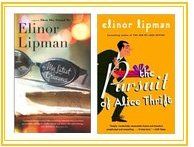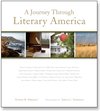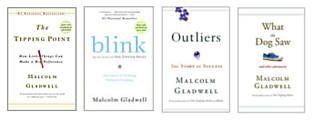Blogging & Musing...
![]() If you love books on a certain theme…you’ll love Flashlight Worthy Book Recommendations, a new site that lists books thematically. So far the site has 370 different lists, in 50+ categories, with nearly 5,000 books. Here’s a tiny sample:
If you love books on a certain theme…you’ll love Flashlight Worthy Book Recommendations, a new site that lists books thematically. So far the site has 370 different lists, in 50+ categories, with nearly 5,000 books. Here’s a tiny sample:
Flashlight Worthy Lists
Books About . . .
Families in Fiction and Memoir
Women of Another Era
Abraham Lincoln
Dystopia
Crime Fiction–About Women By Women
Love–That Your Club Probably Hasn’t Read Yet
African-Americans–Not Just for Black History Month
WASPS
Madness We Can All Relate to
With the Sea in Sight
So head on over to the website to find some great ideas and recommendations for your book club…or just for yourself.
 You read ... and read ... and you read. And you think you’re pretty well up on authors.
You read ... and read ... and you read. And you think you’re pretty well up on authors.
Then you come across one who’s written 8 books—8 mind you!—and you don’t have a clue. You feel so, so ... can I say it... sob ... so UNREAD!!
That’s what happened with Elinor Lipman. Somewhere I came across her name. Hmmm ... that’s vaguely familiar, but only vaguely ... I check her out ... and holy cow! Stunned I am—by her body of work and the fine reviews she’s garnered over the years. So where have I been?
Why isn’t Lipman on the lips of every book club member in the country? She’s funny, smart, perceptive…and her dialogue crackles. We should be reading her!
I’m working my way backward through her books. So far I’ve read My Latest Grievance, The Pursuit of Alice Thrift and Dearly Departed. Wonderful... Check out our reading guides for Lipman’s other 4 novels — they’re on our LitGuide index...L for Lipman!
I plan on reading all 8 novels ... sometime.
 Rarely do I review new books. It’s hard enough to get through my own pile for the website, let alone take on brand new ones. So usually I decline review requests.
Rarely do I review new books. It’s hard enough to get through my own pile for the website, let alone take on brand new ones. So usually I decline review requests.
But this book was different. A Journey Through Literary America looked so intriguing…I couldn’t resist the offer. And what a smart decision! This has to be one of the MOST gorgeous books ever born.
Journey is a big coffee-table-sized book, chock-a-block-full of sumptuous photos—the homes of America’s most beloved authors and the locales of their stories.
With wonderful prose to boot—biographies and personal incidents that make up the authors’ lives, as well as the history and inspiration behind their works.
This is a gorgeous book—the perfect gift for your favorite book lover. Which is you, of course!

 I just finished My Mistress’s Sparrow is Dead (see our Reading Guide), a volume of 26 short love stories edited by Jeffrey Eugenides (author of Middlesex). It’s been a long time since I sat down to read short stories, and I found it challenging.
I just finished My Mistress’s Sparrow is Dead (see our Reading Guide), a volume of 26 short love stories edited by Jeffrey Eugenides (author of Middlesex). It’s been a long time since I sat down to read short stories, and I found it challenging.
As my friend Nan says, reading short stories is “like opening a jewel box.” She’s right: stories are polished little gems…which is what makes them difficult. They’re written with economy—lacking the luxury of 100′s of pages for a more leisurely expansion of plot and character. Everything is compressed—precise—each word or idea contains significance, pointing to something beyond itself. Stories are packed with meaning.
They also tend to be dark, edgy, with more bite than longer fiction. Stories situate a character, an ordinary individual, in a moment of crisis—and within 2 to 20 pages, say, the author must resolve that crisis. Everything is intensified.
Finally, there’s the stop-and-go quality of a story collection, which as opposed to the long arc of a novel can be discomfiting. You get involved with the story and characters…only to have it end quickly. Then on to the next story—working to come up to speed again. It’s like establishing new friends, over and over, only to keep losing them.
But I found, reading through Eugenides volume, that the stories haunted me, out of all proportion to their length. And that’s the beauty of a short story.
For Book Clubs
Take a break from novels and try our LitCourses—each based on a single story. The courses are short, fun, and packed with good information. You’ll find a study guide for each story—perfect to help with discussion. Take a look!
 If you’re a Malcolm Gladwell fan, then you’re in luck! We have Readers Guides—with DISCUSSION QUESTIONS—for all 4 of Malcolm Gladwell’s books. Read and discuss any of the books at your book club!
If you’re a Malcolm Gladwell fan, then you’re in luck! We have Readers Guides—with DISCUSSION QUESTIONS—for all 4 of Malcolm Gladwell’s books. Read and discuss any of the books at your book club!
 I just came across this wonderful quote from Colum McCann, author of Let the Great World Spin.
I just came across this wonderful quote from Colum McCann, author of Let the Great World Spin.
Literature can stop my heart and execute
me for a moment, allow me to become
someone else.*
This is truly fiction’s greatest gift—the chance to crawl inside another being, poke around his consciousness, feel what it’s like to “be” that individual. Often it means changing age, gender, race, or nationality. No other medium does this so completely.
Fun Book Club Exercise
Is there any one particular fictional character you most enjoyed “being”? Or a book that carried you most completely into the mind of its primary character?
 This comment caught my eye, from a Publishers Weekly review of Bridget Asher’s The Pretend Wife.
This comment caught my eye, from a Publishers Weekly review of Bridget Asher’s The Pretend Wife.
It’s more than a little disappointing...that Asher inserts an improbably happy ending.
Ouch. I’m not sure which word is more distressing in that sentence: “disappointing” or “improbably.” And here’s another comment on happy endings, this one from Josh Henkin, author of Matrimony:
Nothing is more depressing than a happy ending that feels tacked on, and there can be great comfort in literature that doesn’t admit to easy solutions, just as our lives don’t. From I Laughed! I Cried – 9/19/08.
Fortunately, Henkin isn’t discounting happy endings per se, only those that feel forced or “tacked on” (i.e., improbable). Still, there’s the suggestion that happy endings are “easy solutions.”
Some questions for Book Clubs . . .
- What kind of books do you like to read? Ones with happy endings—always ... mostly ... sometimes?
- What about the great works of literature…so many end on unhappy notes? Does that mean books with happy endings aren’t considered good literature?
- Do all happy endings feel manipulative, or as Henkin says, ”tacked on”? Can books end happily in a natural, unforced manner?
Site by BOOM
![]()
LitLovers © 2024
